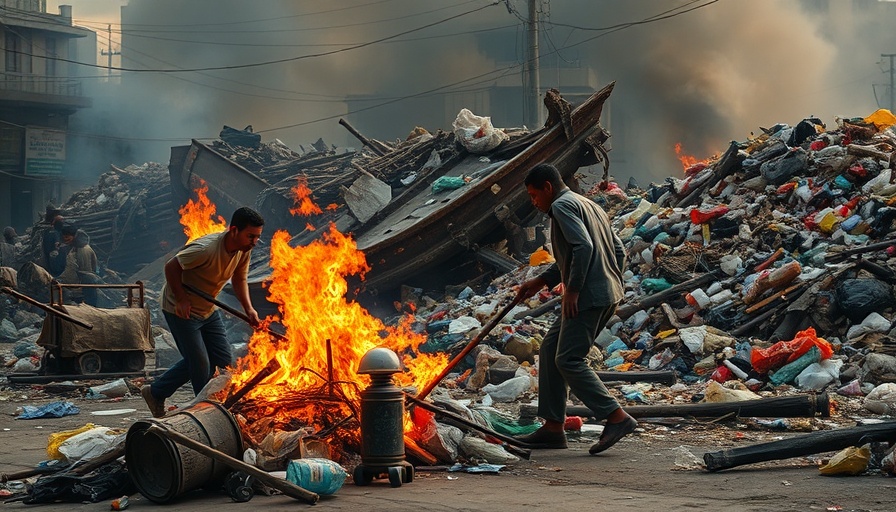
New Leadership at ERC: A Green Light for Renewable Energy
Francis Saturnino Juan’s recent appointment as the head of the Energy Regulatory Commission (ERC) by President Ferdinand Marcos Jr. marks a pivotal moment for the Philippines’ energy landscape. Effective on August 8, this change in leadership comes at a critical time when the country is focusing on enhancing its renewable energy initiatives and building a sustainable future.
A Proven Advocate for Renewable Energy
Previously, Juan led the Independent Electricity Market Operator of the Philippines (IEMOP), where he played a vital role in operationalising the Wholesale Electricity Spot Market (WESM). This market plays a crucial part in connecting renewable energy firms with consumers, allowing for the sale of electricity based on competitive bidding. Such initiatives support the country’s goal to achieve a 35% renewable energy target by 2030, as outlined under the Renewable Energy Act of 2008.
Seamless Transition and Stability in Energy Policies
Juan takes over from Monalisa Dimalanta, who resigned after a seven-year term. While transitions in leadership can often lead to uncertainty, the Department of Energy has assured stakeholders that there will be no significant shifts in energy policy under Juan's leadership. This seamless change is crucial for maintaining investment confidence, especially as the Department continues to introduce competitive auction systems to attract funding in the energy sector.
The Role of the Green Energy Auction Programme
One of the critical elements driving the Philippines’ transition to renewable energy is the Green Energy Auction Programme (GEAP). Recently, the DOE announced the terms for the fourth round of GEAP, which aims to auction off 10,478 megawatts (MW) of capacity from solar, onshore wind, and integrated energy storage technologies. This not only demonstrates the government’s commitment to enhancing its renewable portfolio but also aims to foster a sustainable economy that ensures energy security while tackling issues like climate change.
Juan’s Vision for a Sustainable Future
With his in-depth institutional knowledge, Juan is anticipated to guide the ERC towards making more efficient, transparent, and pro-consumer decisions. His leadership comes at a time when the Philippines' energy sector is pivotal for driving sustainability initiatives, including the reduction of carbon footprints and fostering green jobs. His commitment to environmentally conscious policies resonates widely, especially within circles that prioritize sustainable living and community welfare.
The Bigger Picture: Climate Action in the Philippines
As the world grapples with climate change, the role of regulatory bodies like the ERC becomes increasingly significant. Juan's leadership is poised to strengthen efforts towards eco-friendly product adoption and renewable energy usage, thus contributing to broader sustainability goals. The ERC's decisions can have a profound impact on protecting natural resources, enhancing energy efficiency, and pushing for innovation within the energy sector.
What This Means for Eco-Friendly Consumers
For eco-conscious readers, Juan’s leadership at the ERC signifies more than just a regulatory shift; it embodies a greater commitment to green practices and sustainable lifestyles across the nation. As more companies embrace sustainability initiatives, there is a shift toward ethical sourcing, community-driven efforts, and investments in renewable technologies. Juan’s appointment reinforces the message that the Philippines is serious about transitioning towards a greener future.
As consumers, we can now watch closely how regulatory changes impact renewable energy availability and affordability. In a country rich in natural resources, this evolution could pave the way for innovations in tech aimed at energy efficiency, thus contributing to national and even global sustainability efforts.
Conclusion: A Call to Action in Sustainable Practices
As Francis Saturnino Juan embarks on his new role, the urge for proactive community engagement has never been more essential. Individuals and businesses should consider how they can contribute to sustainability, whether through adopting renewable energy solutions, reducing waste, or embracing ethical consumerism practices. Transitioning towards green technology and increasing our commitment to social responsibility are steps we can all take to advocate for a more sustainable future together.
 Add Row
Add Row  Add
Add 



Write A Comment